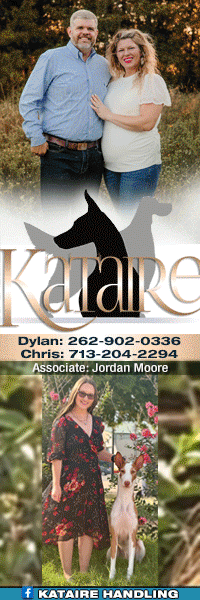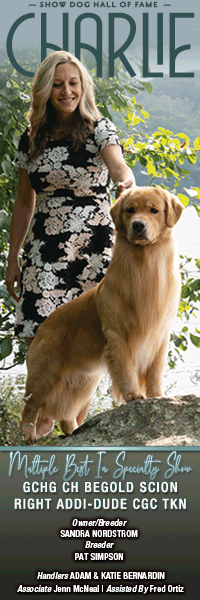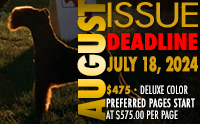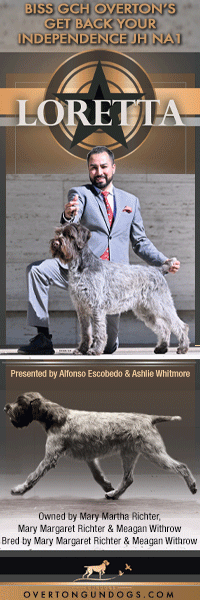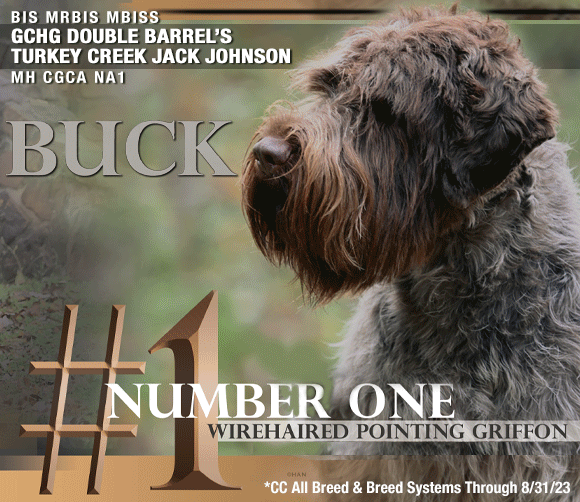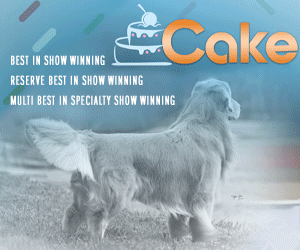From The CC Vault: The Other Side – Reality in the Dog Game is Just a Matter of Perception
by Mary C. Lamphier
From the archives of The Canine Chronicle, November, 1993
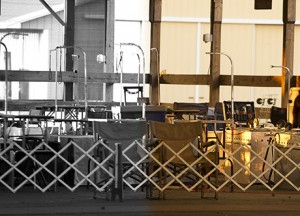 Many people believe that reality is a black and white thing, and that it never changes. Reality, however, is as much a matter of perception as anything and reality changes in relation to the perceptions through which it is filtered. The Belmont Stakes, as perceived by Colonial Affair’s owners, was no doubt a glowing affair; as perceived by Sea Hero’s a terrible disappointment; and by Prairie Bayou’s owners as a crushing tragedy.
Many people believe that reality is a black and white thing, and that it never changes. Reality, however, is as much a matter of perception as anything and reality changes in relation to the perceptions through which it is filtered. The Belmont Stakes, as perceived by Colonial Affair’s owners, was no doubt a glowing affair; as perceived by Sea Hero’s a terrible disappointment; and by Prairie Bayou’s owners as a crushing tragedy.
People bring extreme differences in perception to breeding and judging dogs and therefore they can evaluate a dog or a group of dogs honestly and achieve totally different opinions. Witness the old ‘Type versus Soundness’ argument. I perceive this as a red herring, at least in my breed, because I fail to understand how a sporting dog can be typey when he has no prayer of moving across the ring without two or more of his feet crossing or flapping in the wind. I perceive athletic ability to be an essential part of a sporting dog’s make-up. I am willing to give a little on head for a dog that is an outstanding mover.
I know that others believe just as strongly that the headpiece is a central repository of breed type. They are willing to overlook a level of unsoundness that would horrify me to find the head that makes their heart sing. I suspect that most breeds need both types of breeders, and need both types of judges to make for a healthy mix. The most successful kennel would probably benefit from having one of each; both of whom would be unwilling to compromise in order to preserve what they thought was the salient point. Between them, they would weed out the sound dogs with a face that would make you wince and the incredible head that can’t chase the butterfly across the yard without tripping.
As exhibitors, the way we perceive wins alters the reality of a good or bad day, also. There are those who have had a bad day if they didn’t go Best in Show and others who are joyous at having received a ribbon in the class. In between are those who are looking for a point, looking for a major, looking for the breed, looking for a piece of the group. How closely the judge complies with our desires and reflects the reality we perceive in judging our competitors influences our perception of the judge, his knowledge and his integrity. Having said all that, it becomes even more difficult to decide who is worthy of judging and who is not. If our differing perceptions alter our concept of which is and which is not a good dog, then how can a single AKC rep or even a trio of “judge” experts say who is and is not judging the class correctly? The obvious good, the horribly bad are clear but what about the middle ground dogs who make up the vast majority of exhibits–differing results which are equally valid. This is the point on which livestock judging is superior. The oral commentary allows you to share the perceptions of the judge, to understand his decision, and to perhaps alter or enlarge your own perception of what you see.
Perception of favoritism or political expediency gets many judges in trouble with exhibitors. It doesn’t matter how good your buddy’s dog is; if your relationship is close everyone who lost will be sure that’s why that dog won. The judge is often placed in a no-win situation by people who perceive themselves as friends. If a person is a close enough friend that people will question my dog’s win, I don’t show to him. I don’t want people to say my friend is crooked for putting up my dog or stupid for dumping a dog he’s always liked. I have watched judging where I knew the judge was in this situation, and I have often felt badly for the judge, though not for the exhibitor. A person’s reputation for honesty and integrity is built on everyone else’s perceptions of what is taking place in front of them. Keeping it as simple as just judging the dogs on the day is extremely difficult.
Politics is nearly all perception, too. It can be a perception problem for the judge, causing a dog to look better than it might otherwise. Perception can be a problem for the exhibitor also, chewing the sour grapes of politics rather than reevaluating his own exhibit in the light of the competition.
There is no way, despite what AKC appears to believe, to make everyone’s perceptions identical. Sooner or later, people learn which judges see things most like themselves–which judges want heads or fronts or rears or handlers. Dog shows and breed type seem to survive and perhaps even thrive despite the haphazardness of depending upon individual perceptions. Perhaps we should celebrate all these different perceptions rather than decry them.
Short URL: http://caninechronicle.com/?p=279162
Comments are closed




